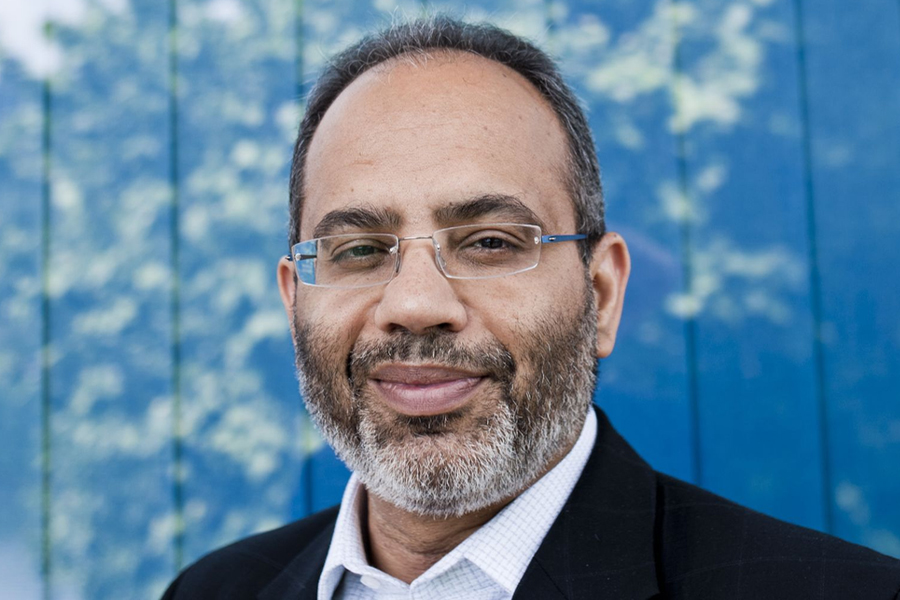
Sunday with Eden | Dec 19,2018
Feb 15 , 2020
By Carlos Lopes
African governments should strengthen strategies and policies aimed at encouraging the transition to a new climate economy and increasing investment in clean energy. By phasing out fossil fuels, Africa can lead by example in the global effort to combat climate change, writes Carlos Lopes, a professor at the Nelson Mandela School of Public Governance at the University of Cape Town and high representative of the African Union for partnerships with Europe and a member of the Global Commission on the Economy and Climate.
African heads of state are convening at the annual African Union (AU) summit, and issues related to the continent’s economic growth and development are front and centre. But leaders also must ensure that their growth agenda is linked to the global challenge of urgent action on climate change. This is particularly critical for Africa, which is disproportionately vulnerable to the effects of global warming: more frequent and severe tropical storms, droughts and floods, all of which have devastated African communities and economies in recent years.
Given the climate risks Africa faces, it is perhaps not surprising to see the continent take the lead in shaping a sustainable future. Of the 108 countries that have thus far indicated that they will step up their climate commitments in 2020, as required by the Paris Agreement, 47 are in Africa. They recognise the opportunities to leapfrog to a new, cleaner, more efficient growth model – and the risks of not doing so.
Moreover, in November 2019, the African Development Bank (AfDB) announced that it would not finance new coal plants in the future. This shift reflects renewable technologies’ increased competitiveness and the emergence of new business models. Combined with investments in energy-efficient appliances, equipment, housing and commercial buildings, these developments can eliminate the need for new coal-generated power in Africa.
The AfDB is adding to the growing momentum across the development-finance community to support the transition to a low-carbon economy, and to move away from coal. More than 100 global financial institutions, increasingly concerned about climate-related risks, have now divested from thermal coal, including 16 of the top 40 international banks, and even more are restricting their investments in new coal.
Shifting away from coal is good not only for the climate but also for Africa’s economy and people. In many regions, renewable energy is now cheaper than coal, even without subsidies. The economics are even more favourable when we consider the hidden costs of coal-related health problems, the risk of stranded assets, and the high upfront investment needed for so-called clean coal. It simply makes no economic sense to invest in new coal.
Indeed, 42pc of coal-fired power plants worldwide are losing money, and Africa is not immune to this trend. Primary energy costs for South Africa’s public electricity utility Eskom have soared 300pc in real terms over the last two decades, leading to dire financial problems and higher rates for consumers. An analysis of the draft 2016 Integrated Resource Plan (IRP) for South Africa’s power system found that the least-cost option was not coal, but rather a mix of solar photovoltaic, wind, and flexible power generators like hydropower, biogas, or gas. In response, the 2018 IRP confirmed a move away from coal to renewable energy. Other African countries trying to follow South Africa’s path would likely find themselves in a similar situation.
Furthermore, shifting to renewables can improve energy access quickly and affordably while avoiding air pollution. Between 1990 and 2013, annual deaths from outdoor air pollution in Africa increased by 36pc, to about 250,000. Decentralised or off-grid renewable energy can reduce harmful emissions, and help rural African communities to meet basic household and public power needs. Broader access to electricity can also boost gender equality by bolstering women-led entrepreneurial activity, implying up to an eleven-fold increase in women’s incomes.
The benefits of a transition away from coal are clear. But as Africa embarks on a low-carbon path, it also must invest more in energy efficiency and avoid becoming over-dependent on natural gas, oil, or even larger-scale hydropower, all of which are highly exposed to climate-related financial risks. Mixed policy signals could result in trillions of dollars of stranded fossil-fuel assets by 2035, or a loss of up to 15pc of GDP if valued in today’s terms. And climate change is already putting some large-scale African hydropower facilities at risk, calling into question their longer-term reliability and financial viability.
But, despite the economic and social case for renewables, new coal-fired plants are still being planned across Africa. With projects expected to come online in Zimbabwe, Senegal, Nigeria and Mozambique, the continent’s coal-fired power capacity could increase from three gigawatts today to as much as 17GW by 2040.
African countries are now at a turning point in terms of how they choose to develop. Governments should strengthen strategies and policies aimed at encouraging the transition to a new climate economy and increasing investment in clean energy.
Making this shift to a resilient, low-carbon economy is critical to achieving the AU’s ambitious Agenda 2063 for inclusive and sustainable development. And by phasing out fossil fuels, Africa can lead by example in the global effort to combat climate change.
PUBLISHED ON
Feb 15,2020 [ VOL
20 , NO
1033]


Sunday with Eden | Dec 19,2018

Commentaries | Dec 11,2021

Commentaries | Jul 12,2025

Sunday with Eden | Oct 31,2020

Commentaries | Sep 07,2019

Viewpoints | Aug 10,2025

Commentaries | Sep 21,2024

Radar | Jun 01,2024

Verbatim | May 03,2024

Radar | Dec 24,2022

Photo Gallery | 179509 Views | May 06,2019

Photo Gallery | 169704 Views | Apr 26,2019

Photo Gallery | 160633 Views | Oct 06,2021

My Opinion | 137187 Views | Aug 14,2021
Commentaries | Oct 25,2025

Dec 22 , 2024 . By TIZITA SHEWAFERAW
Charged with transforming colossal state-owned enterprises into modern and competitiv...

Aug 18 , 2024 . By AKSAH ITALO
Although predictable Yonas Zerihun's job in the ride-hailing service is not immune to...

Jul 28 , 2024 . By TIZITA SHEWAFERAW
Unhabitual, perhaps too many, Samuel Gebreyohannes, 38, used to occasionally enjoy a couple of beers at breakfast. However, he recently swit...

Jul 13 , 2024 . By AKSAH ITALO
Investors who rely on tractors, trucks, and field vehicles for commuting, transporting commodities, and f...

Oct 25 , 2025
The regulatory machinery is on overdrive. In only two years, no fewer than 35 new pro...

Oct 18 , 2025
The political establishment, notably the ruling party and its top brass, has become p...

Oct 11 , 2025
Ladislas Farago, a roving Associated Press (AP) correspondent, arrived in Ethiopia in...

Oct 4 , 2025
Eyob Tekalegn (PhD) had been in the Governor's chair for only weeks when, on Septembe...

Oct 25 , 2025 . By YITBAREK GETACHEW
Officials of the Addis Abeba's Education Bureau have embarked on an ambitious experim...

Oct 26 , 2025 . By YITBAREK GETACHEW
The federal government is making a landmark shift in its investment incentive regime...

Oct 29 , 2025 . By NAHOM AYELE
The National Bank of Ethiopia (NBE) is preparing to issue a directive that will funda...

Oct 26 , 2025 . By SURAFEL MULUGETA
A community of booksellers shadowing the Ethiopian National Theatre has been jolted b...